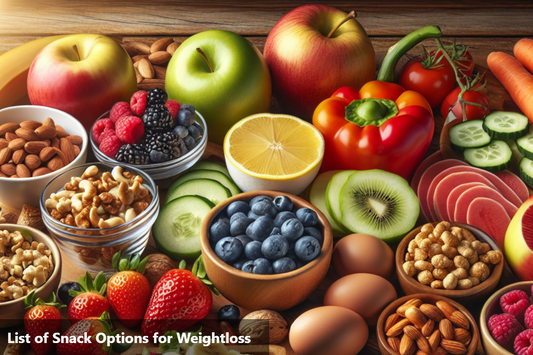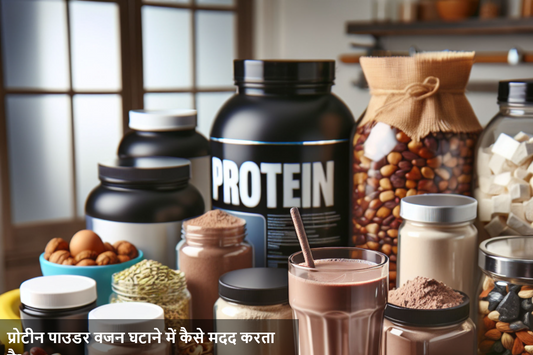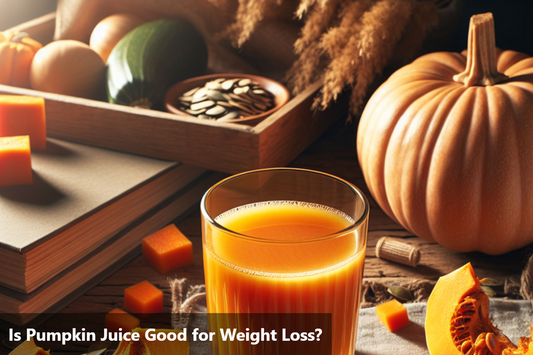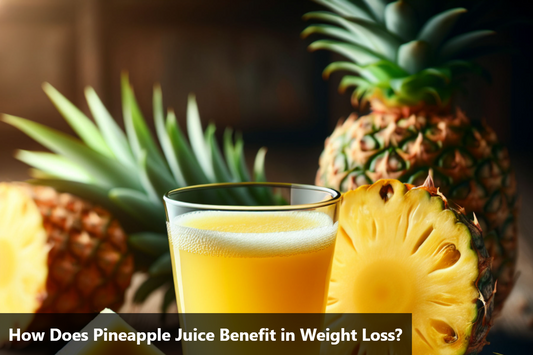Weight loss journeys are often synonymous with dietary restrictions and rigorous workout regimes. However, the significance of what we eat, especially during the night, plays a crucial role in determining the success of these weight loss endeavors. The misconception that avoiding food at night aids in weight loss has been debunked by numerous nutritionists who advocate for a balanced approach. This blog aims to guide adults, particularly working professionals, in selecting the best foods to consume at night that not only satiate hunger but also contribute positively to their weight loss goals. By understanding the right food choices for nighttime consumption, individuals can ensure their efforts towards a healthier lifestyle are effective and sustainable.
Understanding Weight Loss and Nighttime Eating
Weight loss is fundamentally about creating a calorie deficit, where the number of calories burned exceeds those consumed. However, the timing of meals, especially at night, can significantly impact this balance. Nighttime eating, if not managed correctly, can lead to the consumption of extra calories, particularly if the choices are unhealthy.
A common misconception is that eating after a certain time in the evening leads to weight gain. In reality, it's not just about when you eat, but what you eat. Consuming the right types of foods at night can actually support weight loss efforts. These foods should be low in calories but high in nutritional value, ensuring you feel full and satisfied without overindulging.
For adults and working individuals, managing evening hunger pangs with nutritious choices is vital. Post-dinner snacking or late-night meals often become more about convenience and less about nutritional value, leading to choices that are counterproductive to weight loss goals. Understanding the right foods to eat at night is crucial in maintaining a healthy diet and supporting weight loss.
Benefits of Early Dinner for Weight Loss
-
Improved Digestion: Eating dinner earlier allows more time for digestion before bedtime. This can lead to better nutrient absorption and less discomfort, such as bloating or indigestion, which can interfere with sleep and overall metabolism.
-
Enhanced Metabolism: Metabolism tends to slow down as the day progresses. Consuming dinner earlier aligns food intake with the body's natural metabolic rhythm, potentially aiding in more efficient calorie burning.
-
Better Blood Sugar Control: Eating earlier in the evening helps maintain stable blood sugar levels, reducing the likelihood of late-night sugar spikes and crashes. This can prevent cravings and reduce the risk of overeating at night.
-
Improved Sleep Quality: A heavy meal late at night can disrupt sleep, impacting hormones that regulate hunger and appetite (such as ghrelin and leptin). Better sleep quality helps maintain these hormones at optimal levels, supporting weight loss.
-
Reduced Caloric Intake: Early dinner can help minimize late-night snacking, which often involves high-calorie, nutrient-poor foods. Reducing overall caloric intake through fewer snacks contributes to weight loss.
-
Increased Fasting Period: An earlier dinner extends the overnight fasting period, which can promote fat burning and improve insulin sensitivity. This is similar to the principles of intermittent fasting, which has been linked to weight loss and metabolic health benefits.
Best Foods to Eat at Night for Weight Loss
Nourishing Choices for a Slimmer Waistline
-
Protein-Rich Foods: Incorporating protein into your evening meals or snacks can significantly aid in weight loss. Protein not only helps in muscle repair and growth, especially if you exercise, but also increases feelings of fullness. This reduces the likelihood of late-night snacking. Ideal options include:
Greek Yogurt: A versatile, high-protein food that can be enjoyed on its own or with fruits.
Cottage Cheese: Low in calories and high in protein, it's an excellent nighttime snack.
-
Fiber-Rich Foods: Fiber plays a key role in weight loss by keeping you full for longer periods. Foods high in fiber also aid in digestion and prevent late-night cravings. Opt for:
Vegetables: Carrot sticks or bell peppers can be a crunchy, low-calorie option.
Whole Grains: A small serving of quinoa or whole-grain crackers can be satisfying.
-
Healthy Fats: Contrary to popular belief, not all fats are bad for weight loss. Healthy fats can keep you full and satisfied, preventing unnecessary snacking. Some good choices are:
Avocados: Rich in monounsaturated fats, they can be added to salads or eaten alone.
Nuts: A handful of almonds or walnuts can be a fulfilling late-night snack.
-
Complex Carbohydrates: While it's advisable to limit simple carbs, complex carbohydrates are beneficial for sustaining energy levels. They prevent the urge for late-night snacking. Consider:
Sweet Potatoes: A small baked sweet potato can be both filling and nutritious.
Quinoa: This grain is not only a good source of carbs but also contains protein.
-
Hydration and Weight Loss: Often, dehydration is mistaken for hunger. Drinking fluids can help manage late-night cravings. Healthy choices include:
Herbal Teas: A cup of caffeine-free herbal tea can be soothing and hydrating.
Water: Sometimes, a glass of water is all you need to curb those late-night cravings.
Each of these food groups offers unique benefits that can aid in weight loss, especially when consumed during the evening. It's about making smart choices that satisfy hunger while aligning with your weight loss goals.
Foods to Avoid at Night
While knowing what to eat is crucial, being aware of what foods to avoid at night can significantly impact your weight loss journey. Certain foods can disrupt sleep patterns, increase caloric intake, and ultimately hinder weight loss efforts. Here are some types of foods to steer clear of during the evening:
-
High-Sugar Snacks: Foods high in sugar can spike your blood sugar levels, leading to energy crashes and increased hunger. Avoid candies, cookies, or sugary cereals.
-
Heavy Carbohydrates: While complex carbs are beneficial, heavy and simple carbs like white bread, pasta, and pizza can lead to bloating and weight gain.
-
Fatty Foods: Deep-fried foods or those high in saturated fats can be hard to digest and add unnecessary calories to your diet. Skip the fries or fried chicken.
-
Spicy Foods: Spicy foods can cause discomfort and disrupt sleep, which is vital for weight management. Avoiding spicy dishes at night is a good practice.
-
Caffeinated Beverages: Caffeine can disturb sleep patterns. Opt for caffeine-free options like herbal tea or water instead of coffee or energy drinks.
Being mindful of these foods and avoiding them as nighttime snacks or in your dinner can assist in maintaining a healthy diet conducive to weight loss.
Practical Tips for Nighttime Eating
Making smart choices at night doesn't just come down to what you eat, but also how and when you eat. Here are some practical tips to help you optimize your nighttime eating habits for weight loss:
-
Portion Control: It's easy to overeat at night, especially if you're tired or haven't eaten much during the day. Stick to controlled portions to avoid consuming too many calories.
-
Eat Slowly: Eating slowly helps you recognize when you're full, reducing the likelihood of overeating. Take time to savor your food.
-
Balance Your Plate: Ensure your evening meal is balanced with a good mix of proteins, healthy fats, and fiber. This combination keeps you full and satisfied for longer.
-
Mindful Snacking: If you feel hungry after dinner, opt for healthy snacks like a piece of fruit or a handful of nuts, rather than high-sugar or high-fat options.
-
Dinner Timing: Try to eat your dinner earlier in the evening. Eating too close to bedtime can disrupt your sleep and metabolism.
-
Hydration: Keep yourself well-hydrated throughout the evening. Sometimes thirst is mistaken for hunger.
By incorporating these tips into your evening routine, you can create a conducive environment for weight loss, ensuring that your nighttime eating habits support your overall health and weight loss goals.
Embracing Healthy Nighttime Eating for Effective Weight Loss
In summary, the choices we make about what to eat at night can significantly influence our weight loss journey. It's not just about avoiding food in the evening but choosing the right foods that support our health and weight management goals. Incorporating protein-rich foods, fiber, healthy fats, and complex carbohydrates into your evening meals, while staying hydrated, can make a substantial difference. Equally important is knowing what foods to avoid, like high-sugar snacks, heavy carbs, fatty foods, spicy dishes, and caffeinated beverages, especially late at night.
Remember, weight loss is a balanced combination of diet, exercise, and lifestyle choices. Nighttime eating, when done right, can align with your weight loss goals rather than working against them. By practicing portion control, eating mindfully, balancing your meals, and being cautious with timing, you can turn your evening meals into a powerful tool for weight loss.
Stay consistent, make informed food choices, and watch as these small changes contribute to a healthier, more balanced you. Embrace these guidelines not just as a diet plan, but as a sustainable way of living that prioritizes your health and well-being.
This Blog post is an initiative by DiabeSmart, to provide accurate and Nutritionist / Doctor approved information related to Diabetes. DiabeSmart is India's first Food brand designed specifically for Diabetics, that has been clinically tested on Diabetics and Pre-Diabetics to deliver 55% - 70% lower Sugar spikes. DiabeSmart is part of Lo! Foods - India's leading brand for Everyday Functional Health foods.











